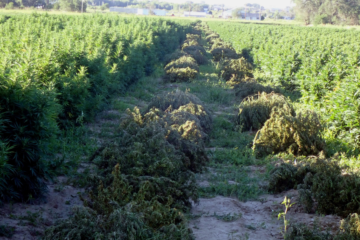Pennsylvania Governor Josh Shapiro urged the state lawmakers to legalize and regulate cannabis for adult use in his annual budget address on Tuesday. The governor said that legalizing cannabis would generate more than $250 million in annual revenue for the state and help fund pandemic relief efforts, restorative justice programs, and small business grants.
Legalization Could Boost State Economy and Address Social Inequities
The governor’s budget proposal does not include a specific cannabis legalization plan, but it calls for a 20% tax on recreational cannabis sales. The proposal assumes a January 2025 start date for adult-use cannabis sales and estimates that the state would bring in $14.8 million in tax revenue during the first year. Shapiro added that he expects Pennsylvania’s taxes on recreational cannabis to increase to approximately $250 million per year once the regulated industry is firmly established.
“We’re losing out on an industry that, once fully implemented, would bring in more than $250 million in annual revenue,” Shapiro said. “And our failure to legalize and regulate this only fuels the black market and drains much-needed resources for law enforcement. It’s time to catch up.”
Shapiro also said that some of the tax revenue from the regulated adult-use cannabis industry should be used for “restorative justice initiatives” to address decades of inequities in the enforcement of cannabis prohibition laws. Among the initiatives, the governor specifically called on lawmakers to pass legislation to expunge the records of those convicted of possession of small amounts of cannabis. Additional funds from the state’s adult-use cannabis program would go to the Department of Agriculture and the Pennsylvania State Police. The remaining revenue would be directed to the state’s general fund.
Legalization Has Majority Support from Pennsylvania Voters and Neighboring States
The governor noted that legalizing adult-use cannabis is supported by a majority of Pennsylvania voters and that five out of six of the Keystone State’s neighbors have already ended the prohibition of cannabis for adults.
“Last year, 57 percent of voters in Ohio supported an initiative to legalize recreational cannabis,” Shapiro said. “And now, Ohio, New York, New Jersey, Delaware, and Maryland – practically all of our neighbors – have legalized cannabis.”

Shapiro said that he hoped the experience of other jurisdictions, where cannabis taxes have generated more than a billion dollars in revenue, would help sway some Republican lawmakers who have been opposed to legalization.
“I think we’ve had a little more time to see what’s happened in places like Colorado with revenues, for example, that this might be one way to plug a hole,” Shapiro said. “My hope is that with the pandemic and the hit we’ve taken to revenues, there might be a little more interest in it now.”
Legalization Faces Opposition from Republican Leaders and Law Enforcement Groups
Despite the governor’s call for legalization, the proposal faces an uphill battle in the Republican-controlled legislature, where leaders have expressed skepticism or outright opposition to the idea.
House Majority Leader Kerry Benninghoff, a Republican, said that legalization would not solve the state’s fiscal problems and would have negative consequences for public health and safety.
“Recreational marijuana is a nonstarter for the House Republican Caucus,” Benninghoff said in a statement. “It is not a budget solution, it is not a jobs plan, it is not good policy.”
Senate President Pro Tempore Jake Corman, another Republican, said that legalization would send the wrong message to young people and would not address the root causes of the state’s budget deficit.
“We should not be encouraging the use of a mind-altering drug simply to generate revenue,” Corman said in a statement. “We should be looking at ways to control spending, not creating new ways to spend money we don’t have.”
Legalization also faces opposition from some law enforcement groups, such as the Pennsylvania District Attorneys Association, which has argued that legalization would increase impaired driving, substance abuse, and crime.
The association’s president, John Adams, said that legalization would be a “failed policy” that would harm the state’s communities.
“We have seen the effects of legalizing marijuana in other states, such as increased youth use, increased impaired driving, and increased hospitalizations,” Adams said in a statement. “We urge the governor and the legislature to focus on evidence-based solutions to the serious challenges facing our state, not on policies that will make them worse.”
Legalization Advocates Applaud Governor’s Proposal and Urge Lawmakers to Act
Legalization advocates, on the other hand, praised the governor’s proposal and urged lawmakers to act on it.
Steve Hawkins, the executive director of the Marijuana Policy Project, a national advocacy group, said that legalization would create jobs, generate revenue, and end the unjust criminalization of cannabis consumers.
“Pennsylvania is among a growing number of states where the majority of voters have made it clear they want to end cannabis prohibition,” Hawkins said in a statement. “We applaud Governor Shapiro for listening to his constituents and for taking this important step toward ending the failed policy of prohibition in the Keystone State. We urge lawmakers to work with the governor to enact a legalization law that is equitable, effective, and reflective of the will of the people.”
Patrick Nightingale, the executive director of Pittsburgh NORML, a local chapter of the National Organization for the Reform of Marijuana Laws, said that legalization would benefit the state’s economy and public health.
“Legalization will create thousands of new jobs, save millions in law enforcement costs, and provide a safer alternative to the unregulated and potentially dangerous illicit market,” Nightingale said in a statement. “We commend Governor Shapiro for his leadership on this issue and we call on the legislature to join him in ending the senseless and harmful prohibition of cannabis in Pennsylvania.”



